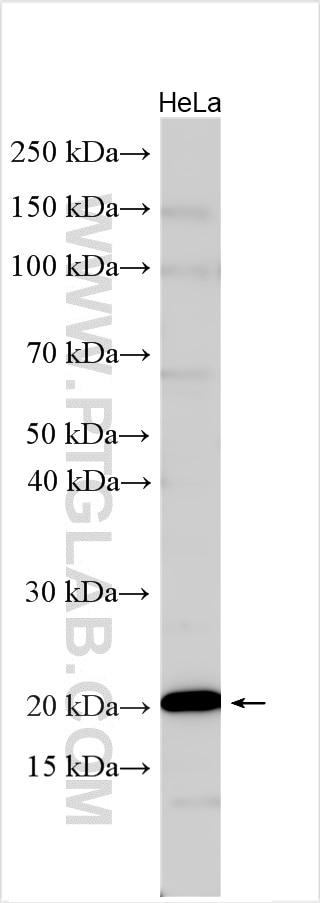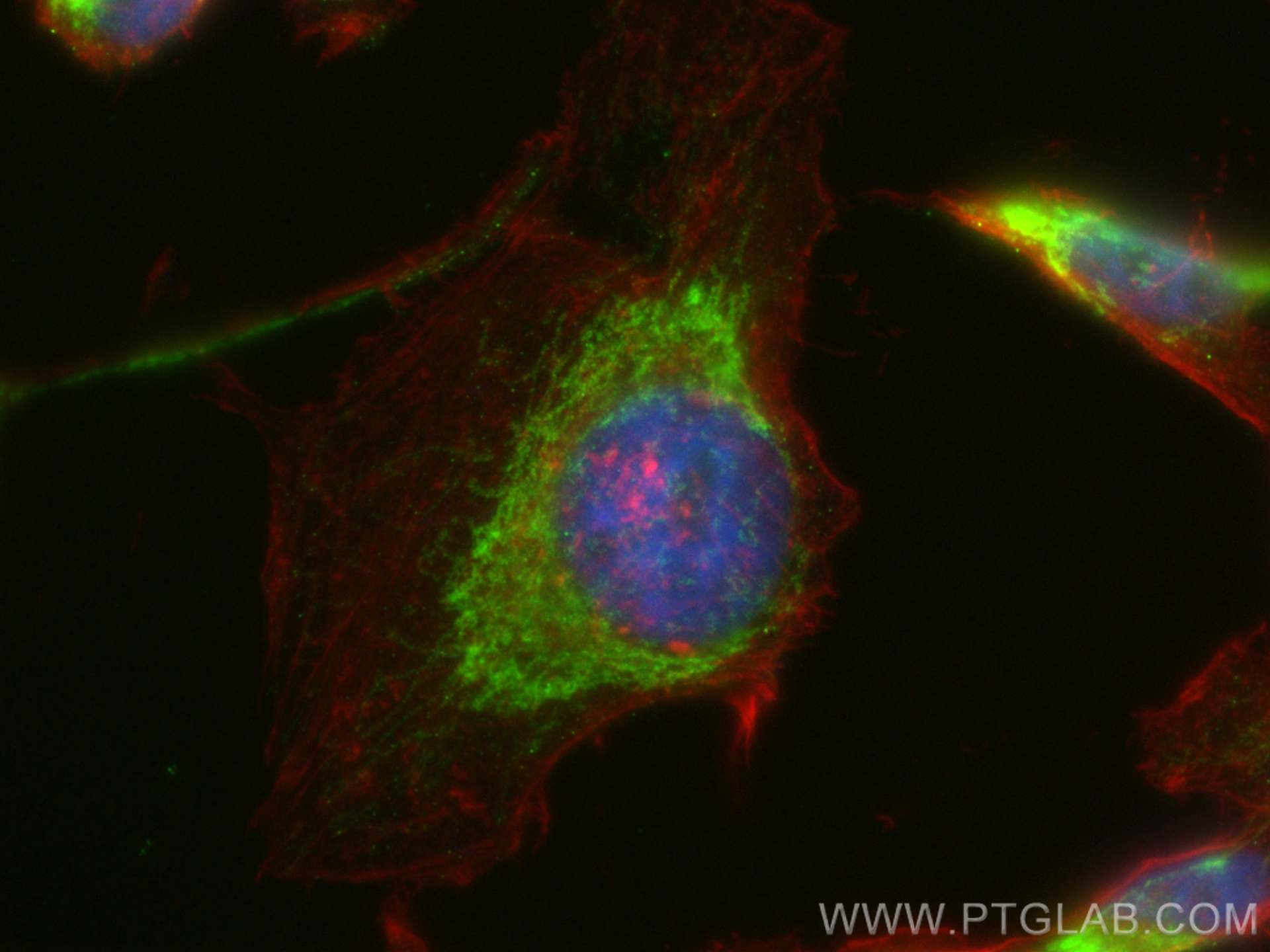Tested Applications
| Positive WB detected in | HeLa cells |
| Positive IF/ICC detected in | HeLa cells |
Recommended dilution
| Application | Dilution |
|---|---|
| Western Blot (WB) | WB : 1:500-1:1000 |
| Immunofluorescence (IF)/ICC | IF/ICC : 1:50-1:500 |
| It is recommended that this reagent should be titrated in each testing system to obtain optimal results. | |
| Sample-dependent, Check data in validation data gallery. | |
Product Information
20759-1-AP targets TMEM126A in WB, IF/ICC, ELISA applications and shows reactivity with human samples.
| Tested Reactivity | human |
| Host / Isotype | Rabbit / IgG |
| Class | Polyclonal |
| Type | Antibody |
| Immunogen | TMEM126A fusion protein Ag14705 Predict reactive species |
| Full Name | transmembrane protein 126A |
| Calculated Molecular Weight | 195 aa, 22 kDa |
| Observed Molecular Weight | 20-25 kDa |
| GenBank Accession Number | BC007875 |
| Gene Symbol | TMEM126A |
| Gene ID (NCBI) | 84233 |
| RRID | AB_3669345 |
| Conjugate | Unconjugated |
| Form | Liquid |
| Purification Method | Antigen affinity purification |
| UNIPROT ID | Q9H061 |
| Storage Buffer | PBS with 0.02% sodium azide and 50% glycerol , pH 7.3 |
| Storage Conditions | Store at -20°C. Stable for one year after shipment. Aliquoting is unnecessary for -20oC storage. 20ul sizes contain 0.1% BSA. |
Background Information
TMEM126A is a mitochondrial inner membrane protein that is enriched in the cristae. TMEM126A is necessary for Complex I assembly or stability.Complex I (CI) is the largest enzyme of the mitochondrial respiratory chain, and its defects are the main cause of mitochondrial disease.
Protocols
| Product Specific Protocols | |
|---|---|
| WB protocol for TMEM126A antibody 20759-1-AP | Download protocol |
| IF protocol for TMEM126A antibody 20759-1-AP | Download protocol |
| Standard Protocols | |
|---|---|
| Click here to view our Standard Protocols |





